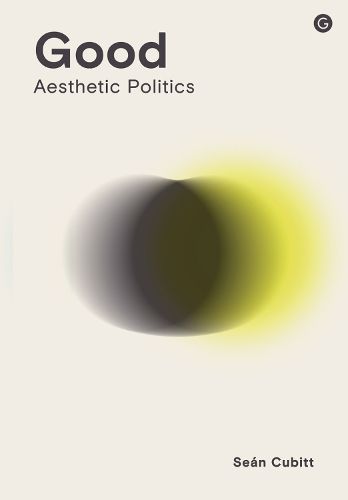Readings Newsletter
Become a Readings Member to make your shopping experience even easier.
Sign in or sign up for free!
You’re not far away from qualifying for FREE standard shipping within Australia
You’ve qualified for FREE standard shipping within Australia
The cart is loading…






What is the good life-for me, for us, for the cosmos?
What is the good life-for me, for us, for the cosmos?
Good is an ecocritical enquiry into ethical and political dimensions of aesthetics. Following Aristotle's lead, it starts with ethics as the question concerning what is the good life for me, moving on to politics as the good life for us. Like Aristotle, between ethics and politics it inserts the question of the good life for you and me-the question of love. In the end-which is where we all live today-it goes beyond Aristotle's human-centred approach, insisting that the good life cannot be thought or lived without including technologies and ecologies. A truly cosmopolitan politics is a politics of the cosmos. Learning from indigenous cultures, it speaks from and with nature and machines in the form of gods and ancestors. Packed with examples from banking apps to cave art, economic manifestos to cookery, passing through music, painting, poetry, and film, the book evokes critical traditions from across the world to present a lucid and accessible case for decolonial and ecocritical aesthetics.
$9.00 standard shipping within Australia
FREE standard shipping within Australia for orders over $100.00
Express & International shipping calculated at checkout
What is the good life-for me, for us, for the cosmos?
What is the good life-for me, for us, for the cosmos?
Good is an ecocritical enquiry into ethical and political dimensions of aesthetics. Following Aristotle's lead, it starts with ethics as the question concerning what is the good life for me, moving on to politics as the good life for us. Like Aristotle, between ethics and politics it inserts the question of the good life for you and me-the question of love. In the end-which is where we all live today-it goes beyond Aristotle's human-centred approach, insisting that the good life cannot be thought or lived without including technologies and ecologies. A truly cosmopolitan politics is a politics of the cosmos. Learning from indigenous cultures, it speaks from and with nature and machines in the form of gods and ancestors. Packed with examples from banking apps to cave art, economic manifestos to cookery, passing through music, painting, poetry, and film, the book evokes critical traditions from across the world to present a lucid and accessible case for decolonial and ecocritical aesthetics.